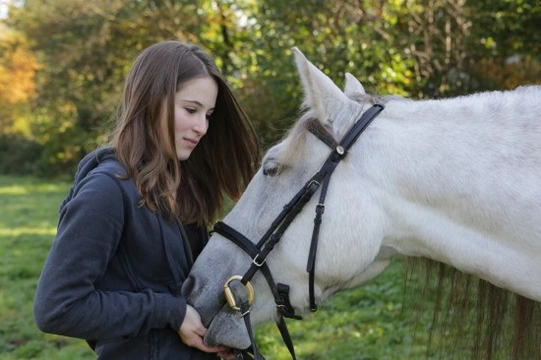
Aflatoxin Poisoning in Horses Explained
Aflatoxins are typically produced by a fungus known as Aspergillus flavus which can be found in many feedstuffs which have not been stored in optimum conditions. The fungus is a mould that's naturally occurring but it thrives in humid conditions. This includes in crops, soil, grains, hay and vegetation which is why owners very often get caught out when their horses come down with aflatoxin poisoning.
How Does Aflatoxin Poisoning Affect Horses?
Aflatoxin poisoning typically affects a horse's liver which then leads to them experiencing problems synthesising all-important proteins. Blood clotting and fat metabolism is also affected which means the condition should never be taken too lightly and immediate veterinary intervention would be essential for a horse to make a full recovery with after-care playing a crucial role.
Types of Aflatoxin Poisoning
There are two main types of aflatoxin poisoning seen in horses both of which need to be treated by a vet as soon as you notice any of the symptoms associated with the condition are apparent.
Acute Aflatoxin Poisoning
When a horse is suffering from an acute case of aflatoxin poisoning they will typically show the following symptoms:
- Fever
- Severe depression
- Anorexia
- Abdominal pain which could lead to colic
- Yellowing of the mucous membranes which could lead to jaundice
- Bloody faeces
- Nose bleeds
- Ataxia which is loss of co-ordination
- Lying down continually
- Muscle spasms
- Convulsions
- Death
Chronic Aflatoxin Poisoning
Horses that have ingested any mouldy feed might well come down with chronic aflatoxin poisoning and this could be after eating contaminated hay, hard feed or other mouldy grains. The symptoms to watch out for include the following:
- Weight loss
- Rough hair coat
- Jaundice
- Anaemia
- Diarrhoea
- Haematomas under the skin
The Causes of Aflatoxin Poisoning in Horses
As previously mentioned aflatoxins are a naturally occurring fungus that thrives in damp, moist conditions where mould forms and this could be in hay, straw, hard feeds, vegetation and crops. The toxins, therefore, can be found in grains and forages without owners even realising their presence. When horses eat contaminated foodstuffs, they ingest the fungus which then leads to aflatoxin poisoning.
Diagnosing the Condition
It can prove problematic when diagnosing aflatoxin poisoning in horses due to the fact clinical signs can often be non-specific and therefore very similar to a number of other conditions which are, however, equally serious. A vet would want to carry out blood work to see whether liver enzymes are elevated and to establish if there are any other non-specific"" apparent changes.
Unfortunately, it is not possible for vets to take samples from a living horse to determine whether they have indeed ingested any of this toxin or not. With this said, samples of their feed can be taken to establish whether or not they are contaminated and therefore, this is the best route to take when attempting to make a correct diagnosis.
Treating the Condition
Unfortunately, there isn't a specific treatment for aflatoxin poisoning but most vets tend to use activated charcoal which they administer orally to a horse diagnosed with the condition. The charcoal actively absorbs the toxins which means they pass through a horse's system without them being absorbed into a horse's body thus avoiding any poisoning of their systems.
However, other treatments that vets recommend are more supportive and this includes feeding horses a low-fat diet which they can easily digest. Vitamins should also be added to feeds as these have shown to be beneficial when treating a horse suffering from aflatoxin poisoning. With this said, the most crucial thing is to remove any problematic and contaminated food so horses do not have access to it and therefore ingest any harmful aflatoxins which would then exacerbate their condition.
Prevention is Essential
It goes without saying that proper stable management and good husbandry go a long way in preventing a horse from developing aflatoxin poisoning. This means careful inspection of any foodstuffs and this includes hard feed, grains, hay and straw. The way feedstuffs are stored is also crucial in preventing any harmful mould from forming in the first place.
Conclusion
Aflatoxin poisoning in horses is a very serious condition and horses suffering from the condition need to be seen by a vet as soon as possible so a treatment can be set in place sooner rather than later. However, it is really important to discover how a horse ingested the fungus in the first place and any contaminated foodstuffs have to be taken out of the equation. Although there is no specific treatment for aflatoxin poisoning, vets will usually administer active charcoal which is known to absorb the harmful toxins rather than them being absorbed into the horse's body. Treatment thereafter is more supportive with diet playing an important part in a horse's recovery.
""



